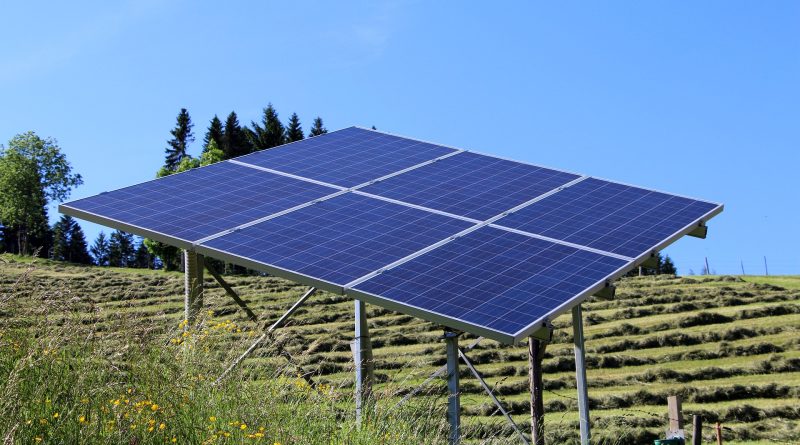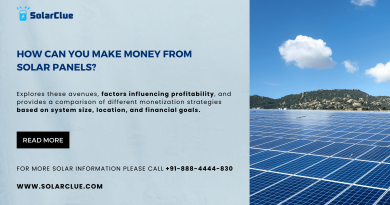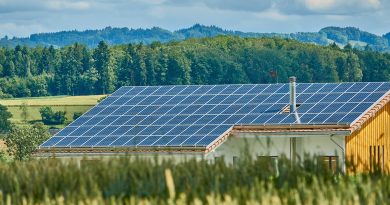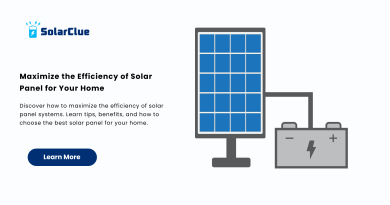Can I directly attach electrical appliance to solar panels?
Solar energy is becoming increasingly popular as a sustainable and clean source of power. As more people embrace renewable energy, they are considering various ways to integrate solar panels into their daily lives. One common question that arises is whether it is possible to directly attach electrical appliances to solar panels. In this blog, we will explore the feasibility and considerations of connecting electrical appliances directly to solar panels, and provide you with the information you need to make an informed decision.
Table of Contents
Understanding Solar Panels
Before delving into the topic, it is important to have a basic understanding of solar panels. Solar panels, also known as photovoltaic (PV) panels, are devices that convert sunlight into electricity. These panels are made up of multiple solar cells, typically composed of silicon, which allows them to generate direct current (DC) electricity when exposed to the sun’s rays. This electricity can then be used to power various electrical appliances and devices.
The DC electricity is then passed through an inverter, converting it into alternating current (AC) electricity, which is the type of electricity used in most homes and electrical appliances. This AC electricity can be used immediately to power electrical devices or stored in batteries for later use. The entire system is interconnected, allowing for a continuous supply of clean and renewable energy.
To efficiently harness solar energy, solar panels are often installed as part of a larger solar panel system. This system includes other components such as charge controllers, inverters, and batteries. The solar panels capture sunlight, which is then converted to DC electricity and fed to the charge controller. The charge controller regulates the flow of electricity to protect the batteries from overcharging.
Directly Attaching Electrical Appliances to Solar Panels
While it may seem convenient to directly connect electrical appliances to solar panels, it is not a recommended practice. Solar panels are designed to generate low-voltage DC electricity, which is not directly compatible with most household appliances that require AC electricity. Consequently, attempting to connect appliances directly to solar panels can result in damage to the appliances and may even pose safety hazards.
Additionally, solar panels generate electricity based on the available sunlight. The power output of solar panels fluctuates throughout the day, depending on factors such as weather conditions, angle of the sun, and shading. These variations in power output can damage sensitive electrical devices that require a steady and stable power supply.
Using an Inverter
To connect electrical appliances to solar panels, an inverter must be used. As mentioned earlier, an inverter converts the DC electricity generated by solar panels into AC electricity that is compatible with most household appliances. By incorporating the inverter into the solar panel system, you can ensure a steady supply of electricity to power your appliances, while also protecting them from potential damage.
Considering Power Requirements
Before connecting electrical appliances to a solar panel system through an inverter, it is essential to consider the power requirements of the appliances. Each appliance has a specific power rating, which indicates the amount of electricity it consumes. The solar panel system must have sufficient capacity to meet the combined power requirements of all the appliances you intend to connect.
To calculate the capacity of your solar panel system, consider factors such as the total power consumption of all appliances, the average number of hours the appliances will be used, and the number of daylight hours your solar panels are exposed to direct sunlight. By accurately assessing your power requirements, you can ensure that your solar panel system can adequately support your electrical appliances.
Conclusion
In conclusion, while the allure of directly linking electrical appliances to solar panels may be strong, it is not recommended due to potential compatibility issues and the risk of damaging your valuable appliances. For an efficient utilization of solar energy to power your appliances, it is essential to incorporate a SolarClue® inverter into your solar panel system. This device adeptly converts the DC electricity generated by the solar panels into AC electricity, ensuring compatibility with most household appliances.
When connecting appliances to a solar panel system, it is crucial to carefully assess your power requirements, ensuring that your SolarClue® system can provide ample electricity. By gaining a thorough understanding of how solar panels function and integrating the necessary components, you can effectively harness solar energy with SolarClue® and actively contribute to a more sustainable future.
Frequently Asked Questions
In most cases, it’s not advisable to directly connect electrical appliances to solar panels. A proper solar power system includes components like charge controllers and inverters to regulate voltage and ensure compatibility.
Directly connecting devices to solar panels without necessary components poses safety risks. It’s recommended to use a solar power system with a controller and inverter to manage voltage levels.
Yes, you typically need a charge controller and an inverter to regulate and convert the solar power for safe use with electrical appliances.
Small, low-voltage devices might be connected directly, but for most household appliances, a complete solar power system with proper components is essential.
Yes, without regulation, appliances can be damaged due to variations in voltage. Using a complete solar power system minimizes these risks.
It’s not about the type of panels but the system. Any solar panels can be used, but a comprehensive system is crucial for safe and efficient operation.
The recommended voltage and current depend on the specific requirements of your appliances. A properly designed solar power system will provide the necessary regulation.
Yes, an inverter is crucial to convert the DC power generated by solar panels into AC power suitable for most household appliances.
Yes, but it requires a well-designed solar power system with sufficient capacity, including inverters and controllers, to handle the load.
Always follow manufacturer guidelines, use proper safety measures, and consult with a professional to ensure a safe and efficient setup for connecting appliances to solar panels.




